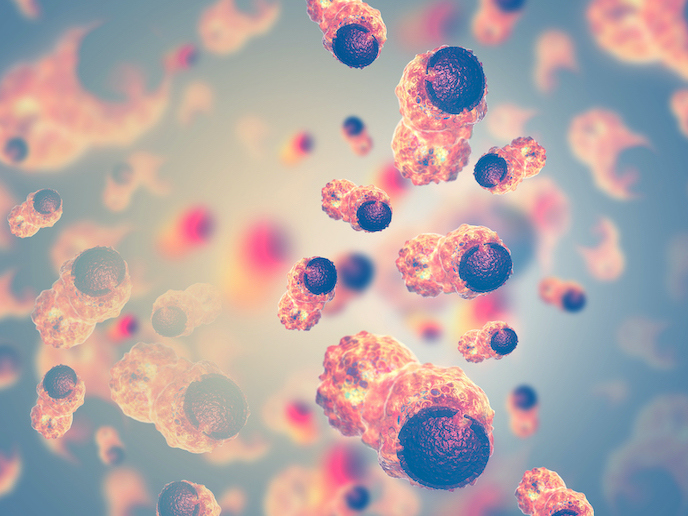First, do no harm: Reducing the side-effects of cancer treatment
The most common cancer treatments tend to involve surgical tumour removal, combined with therapies to kill metastatic cells(opens in new window) (cancerous cells that spread to other parts of the body). Chemotherapy(opens in new window) for example is often given prior to surgery to reduce tumour size, and after surgery to reduce potential metastasis. Therapies such as chemotherapy aim to induce cell death. However, in some patients, cells resistant to therapy can survive, potentially leading to tumour recurrence. “The therapies and procedures themselves can influence the environment of the surviving tumour cells,” explains Cancer-Recurrence(opens in new window) project coordinator Jacco van Rheenen from the Netherlands Cancer Institute (NKI)(opens in new window). “I wanted to study some unintended side-effects of therapies, to see how we might reduce tumour recurrence. This could open up new therapeutic avenues, leading to improved outcomes for a wide range of cancer treatments.”
Unintended side-effects
The Cancer-Recurrence project, which was supported by the European Research Council(opens in new window), began by conducting a retrospective study of patients who had undergone biopsies (the removal of tissue samples). Intravital imaging(opens in new window), which is a form of microscopy that allows biological processes to be observed at high resolution, was also carried out on mice. “We developed new mouse models, intravital imaging tools, and single cell sequencing approaches, to study whether surviving cancer cells undergo a change in their composition or traits,” adds van Rheenen. “We then used these tools to examine how these cells spread to distant sites and might induce the regrowth of tumours.” Some unintended negative aspects of carrying out biopsies were identified. “Our studies suggested that needle biopsies can induce an inflammation response,” says van Rheenen. “This can lead to a subsequent increase in the proliferation and migration of the remaining cancer cells.” More specifically, van Rheenen and his team were able to show how certain tumour cells migrate and proliferate through the recruitment of macrophages, specialised cells involved in the detection and destruction of harmful organisms. The Cancer-Recurrence project was able to conclude that inhibiting the recruitment of these macrophages could increase the clinical benefits of surgical and biopsy procedures. Administering dexamethasone, a commonly used steroid to treat inflammation, was found to lead to the suppression of the observed inflammatory response, and subsequent tumour growth upon biopsy in both mice and patients.
New treatment approaches
The project findings open up new approaches to treating tumours that are focused on the patient rather than the disease. “Although patients are often treated with the same treatment schedule, we know that therapies are often only beneficial for a small number of patients,” says van Rheenen. “This means that we overtreat many patients with unwanted side-effects.” The next step for van Rheenen and his team is to identify patients that benefit most from particular treatments, for example, chemotherapy, and to avoid treating those patients where there is no benefit. “This requires the identification of good biomarkers,” he notes. “For this we intend to continue this research, looking for different types of treatment and cancers.” The success of the Cancer-Recurrence project has enabled van Rheenen to create a new research line in his lab, focusing on the unwanted side-effects of therapies. “This is important, since one of the first things that doctors learn during their studies is Primum non nocere, first do no harm,” he concludes.







